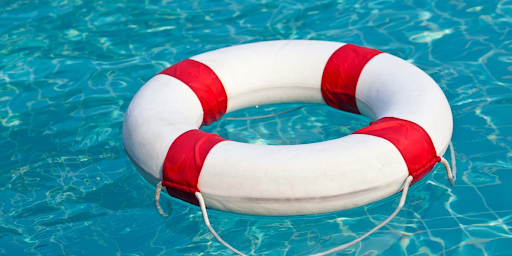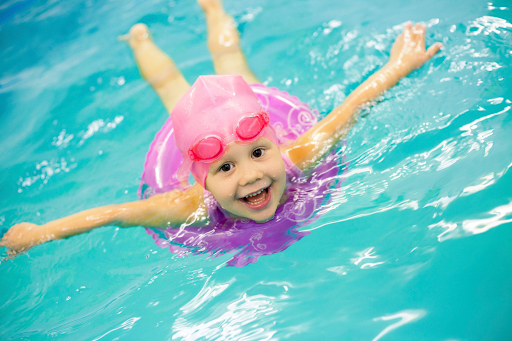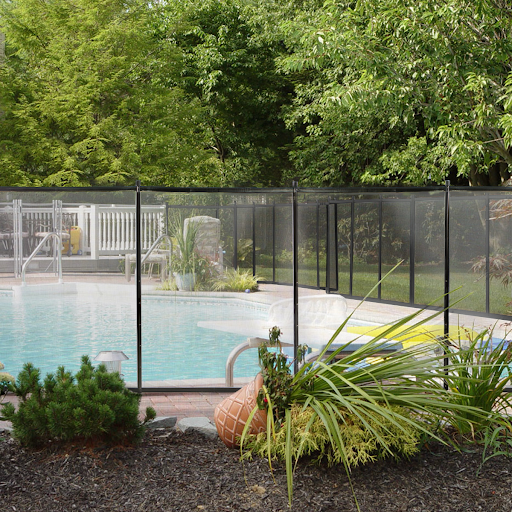
The summer season brings along a lot of fun in the sun. One of the most enjoyable summer activities that everyone loves to do is hanging around the pool, swimming, and partying with friends and family. However, it is a fact that the high fatality rate among young swimmers is due to swimming recklessly. If you own a swimming pool or a spa in your outdoor space, it is crucial to take all the necessary steps to keep everyone safe and secure around the pool., especially children and pets. This requires encouraging appropriate water behavior and installing safety devices inside the pool. All the safety strategies that you would implement in your swimming pool would ensure that all your family members and the children are safe and protected in the water.
How to make your pool safe?
First things first, let us begin with making your swimming pool a safe zone for everyone who uses it. There are a few steps to follow for making your swimming pool secure.
Build a fence around the pool.
Your pool is an oasis of relaxation, but it takes no time for it to turn into an absolute nightmare. Therefore, building a fence around your pool is a brilliant idea to keep your pool safe from unwanted guests, adding an extra layer of protection. Not only is a fence around your pool a good idea, but in some places, it is also required by the law for safety and protection. The pool fence would ensure that your pets and children do not wander unattended in the pool area, and you would be relaxed knowing that your loved ones cannot access the pool unless there is someone older to unlock the gate and get the children inside. Nit only safety, fencing your pool provides you with extra privacy as well. You do not want your neighbours to stare around when you are swimming with friends and family, do you?
Cover suction hazards and drains.
You already know that the pool water needs circulation through a filter system to remove debris and dirt. During this regular operation, the water flows into the filters through two drains located at the bottom of the swimming pool. These drains are located at the bottom because the entire pool surface would tilt towards them. Most of the pool debris and dirt gets out through the pool drains. Therefore to keep your family members safe from getting their limbs or hair into these drains, they must not be kept open at any time. These covers provide safety from suction hazards, and if missing, the pool should not be used unless the drain covers get replaced.
Clean the pool regularly.
Pool dirt is a ground for several bacteria and many other microorganisms spreading germs that can make you fall sick. Here are a few good habits that would help you maintain your swimming pool's cleanliness.
- Always shower before getting into the pool to avoid taking dirt from the outside.
- Do not swim in underwear or street clothes. Wear a proper swimsuit while going for a dip.
- Wearing a swim-specific diaper is essential to avoid any mishaps.
- It is not recommended to go for a swim if you have been suffering from diarrhoea or vomiting for the past 48 hours.
- It is not practical to get into the water with an open wound or a sore.
- Food and drinks near the pool area should be prohibited since there are chances of spilling inside the water, making grounds for bacteria and pests.
- Do not use glassware near the pool area. If it breaks, you would have to drain the entire pool water to clean the inside space.
- Ensure that your pool circulation system is adequately maintained.
How to keep your younger ones safe near the swimming pool.

As an adult, you may feel that there are other essential things to do rather than supervising children near your pool area. However, this is not a good idea. Children and kids around the swimming pool should not be left unattended, even for a few moments. Building a fence around your pool is something we have already discussed above, how it helps you protect your children from going near the pool without an adult. Additionally, you should take the following few pool safety measures if you have children living in your house.
Set pool safety rules and communicate them to your children.
Creating a list of rules and regulations to abide by near the pool area for children is a great idea. Post them in bold, in a place where they are clearly readable. Some of these rules include:
- No roughhousing or running near the pool's deck.
- Absolutely no use of electronic appliances near water.
- No going near the swimming pool without an adult.
- Bringing toys is not allowed near the pool.
- No holding or dunking anyone inside the water.
- Avoid diving in the pool's shallow parts.
Speaking of diving, this is the most common reason for injuries, leading to fatal accidents. It would be better to entirely get rid of the diving board, where there are kids around the house.
Teach your kids how to swim.
Teaching your children how to swim is the best way to make them learn about the pool's safety and protection. It would not make your children accident-proof, but they will be careful inside the water if they know how important pool safety is.
Keep the first-aid box and other rescue equipment ready at all times.
Despite putting our level best efforts, accidents still might happen, most likely to occur with many kids around. Therefore, it is essential to keep your first-aid kit ready at the nearest reachable point to the pool if any child gets hurt. You should also have other rescue types of equipment like rescue tubes, life rings, life vests, life hooks, etc. It will also be a great idea if you learn how to perform basic CPR so that you do not have to wait for the medical professionals to arrive if any child is in need.
How to stay safe while swimming?
 Here are a few safety tips that every one of us must follow when swimming in a public or own swimming pool.
Here are a few safety tips that every one of us must follow when swimming in a public or own swimming pool.
Read the signs.
Do not ignore any caution signs or boards near the public pool area. They have been set up to protect you from accidents and keep the water germ-free and clean. Furthermore, if you are a pool owner, make sure you set some safety signs on your pool deck.
Do not run. Walk instead.
Never run or encourage running on the pool deck as the area is slippery, and the risk of fatal injuries is exceptionally high, especially when water is spilled on the deck.
Get in and out of the pool carefully.
To get inside or outside the water, you should use the handrail to avoid the chances of falling or slipping. Unless you are dry after getting out of the swimming pool, avoid climbing or running on slippery surfaces.
Take a look around before diving in.
Look carefully inside the water before diving in, as there are chances of hurting yourself if you dive in shallow areas or hitting some underwater decorative elements like logs or rocks in public pools. Look around if there is a no-diving sign.
Stay with what you are capable of doing.
Only swim in the areas you are familiar with in a public swimming pool when dipping inside the water. Also, do not go deeper than you can handle in your own house pool.
Avoid drinking alcohol before going for a swim.
Pool injuries due to drinking alcohol are common water issues. Not only regular swimming pools but hot tubs, spas, and other water bodies also put you at significant risk if you go inside being drunk. Alcohol slows down your reaction time, thus making water accidents worse. Specifically, it is hazardous to drink in a hot tub before going inside, as alcohol makes you sleep, and you would not know when the temperature rises.
Watch for underwater pool equipment.
It is not good to play near underwater pool equipment such as drains or skimmers. The water is constantly circulating in the pool through a filter system used to pull the pool water out into pipes through a pool drain. Therefore, playing around near such equipment means that your hair, fingers, arms, legs, torsos, and toes can easily be caught into these suctions. Drains with a more potent suction may even hold you inside the water, resulting in drowning. If your hair is long, make sure that you wear a bathing cap or tie your hair in a bun to avoid getting caught in the drain.
Protect your skin.
When going out in the sun for a dip in the pool, wear an adequate amount of sunscreen and encourage your children as well. The sunscreen should be SPF 15. It is recommended to wear sunscreen because the pool water's chlorine can easily cause sunburns. Also, wear fully covered swimsuits to avoid tanning your skin due to direct sun exposure.
Conclusion.
If you have a swimming pool or a spa at home, it is pretty evident that you would love to spend your time swimming and enjoying yourself under the sun. However, it is crucial that you are aware and prepared for the risks and dangers of swimming and the pool itself. Following all or as, many of the above-mentioned pool safety tips would not only ensure complete protection of you and your family members near the pool but also make your experience a greater one every time you decide to get inside the water. Have a happy summer!
